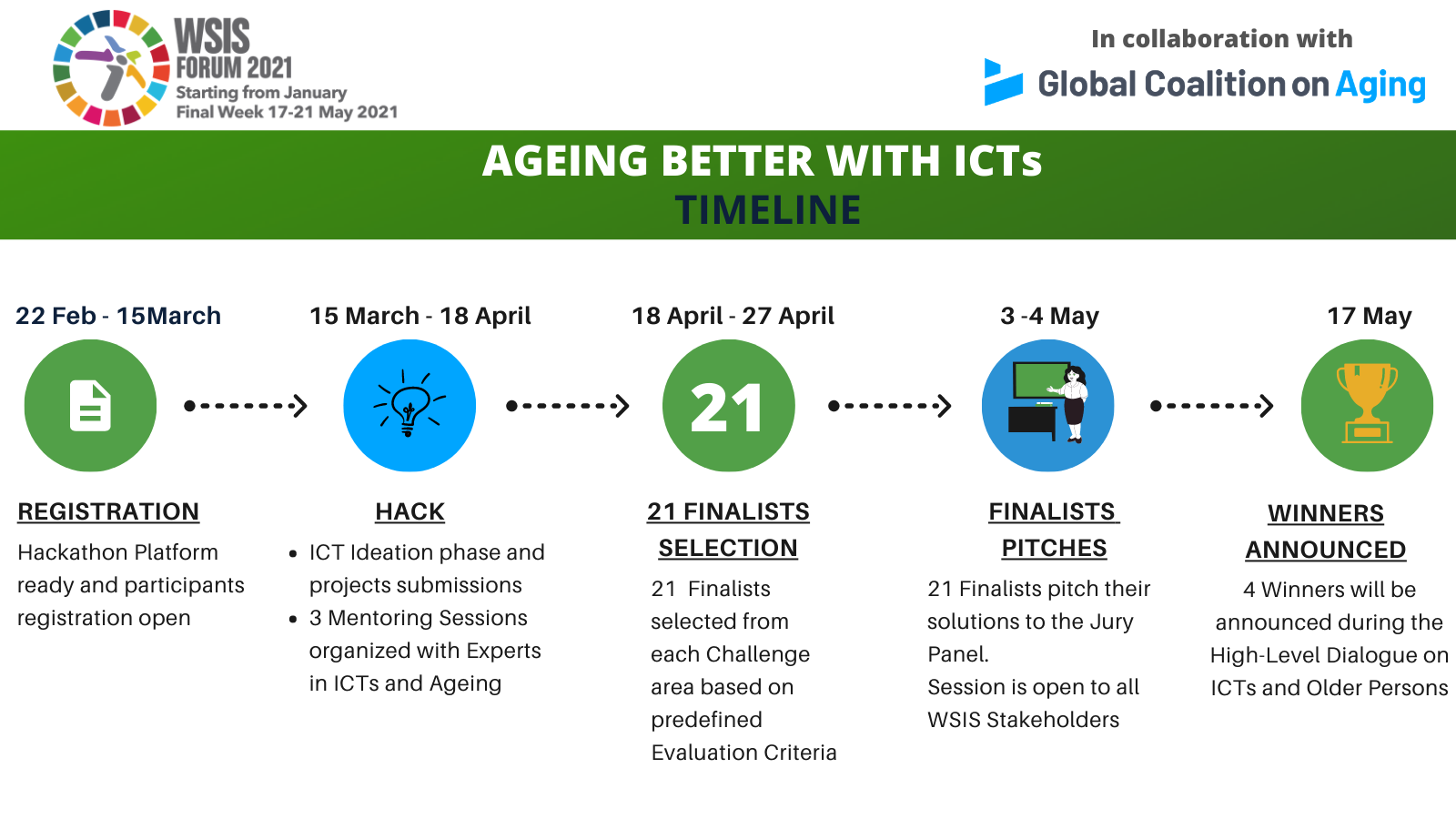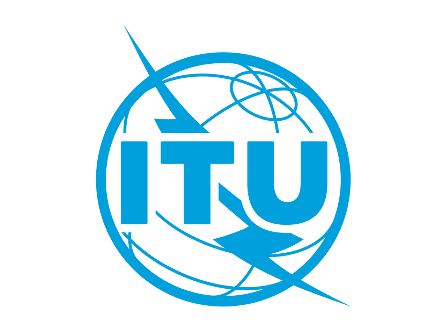Building a Brighter Future for Older Persons Through ICT Innovation

ICTs have come to define our worlds and, as such, are no longer solely the purview of a younger demographic, but rather, they connect organically to the Silver Economy – the products and services that are designed specifically for the needs and desires of an older demographic. From healthcare to banking, retail to transportation, education to entertainment, older persons are established end users of these new technologies.
Yet the shared experience of our global challenges, brought to light even more through the pandemic, has proven that we can do more for our ageing populations in connecting them to the benefits of ICT’s. The pandemic has exposed critical gaps in our health and care systems, our economies, our cities and communities, our built environments, and our societies – gaps that have had an outsized negative impact on the health and wellbeing of older persons. The Ageing Better with ICT’s Hackathon is an opportunity to take inspiration from what we have learned over the past year and build a better future for older persons around the world.
In 2020, the spending power of the 60+ population, the silver economy, is 17 trillion $ nearly double that of the 2010 60+ population**
Amid the challenges of a global pandemic, the year 2021 marks the beginning of the UN/WHO Decade of Healthy Ageing
What is #AgeingBetterHack?
The World Summit on the Information Society (WSIS) and the Global Coalition on Aging (GCOA) will co-organize a virtual hackathon that focuses on how ageing in today’s increasingly digital world can be enhanced through the use and applications of ICT’s. The heightened awareness of the need to address the challenges of older persons with ICTs was starkly highlighted during the global pandemic.
The online hackathon will ideate ICT solutions that respond to challenges faced by older persons and that may have surfaced or been exacerbated by the COVID-19 pandemic. Participating teams will develop ideas and demonstrate proof of concept in one of four challenge areas:
1
Alzheimer’s Disease and Cognitive Decline
including solutions to support early detection and diagnosis, integrated care, or quality of life for patients and their families
2
Frailty
including solutions to support better bone health or reduce the risk of falls
3
Transportation and Mobility
including solutions that support greater independence for those with vision loss or limited mobility
4
Financial Tools for Longevity
including solutions that support retirement planning for longer lives or protect against financial abuse
One winning team will be chosen for each of the four challenge areas, and the winners will be announced at the WSIS Forum 2021, 17-21 May.
Why should you participate?
Because your idea can make a difference in building more resilient, inclusive and sustainable societies

Your idea can improve the lives of older persons all over the world, today and in the future

Your idea can lead to life course change for all global citizens

Feedback from experts from GCOA members, WHO and ITU
Who can apply & how?
In technology and innovation circles, particularly in the ageing space, developers often design and build without the challenges of the actual end users top of mind because creative teams do not include older persons themselves. This arrangement may lead to technologies that provide some value but are unlikely to be heavily used or sustainable in the long run. The Ageing Better with ICTs World Hackathon calls on creators and developers to form age-diverse teams of 2-5 and participate in the virtual hackathon.
Apply if you…
- …are passionate about ageing well
- …are passionate about technology and innovation for positive social and economic impact
- …have an idea or an existing project related to helping older persons solve day-to-day challenges they face
- …would like to further develop your idea or an existing project
- …understand and can create solutions that are useful and appealing to the 60+ market
How to apply:
As a team (ideally between 2 to 5 participants; gender balance would be ideal)
NOTE that you can also apply individually (to get matched with an existing team that wishes your support over the course of the Hackathon).
Timeline

Winning Prize

The winning team in each of the four challenges will be provided with $1,000 and 6 months of in-house mentorship to prepare the concept for release, through GCOA and its member companies.

e-Certificates of participation will be issued for all participating teams.
A Hacka… what?
A Hackathon is a powerful tool to innovate by bringing together diverse actors who do not usually work together. The format embraces the complexity of challenges, as well as enables the participants to identify practical interventions and approaches to address urgent issues. Moreover, the hackers will be benefiting from the specific know-how and skill sets of experts on the topic.


